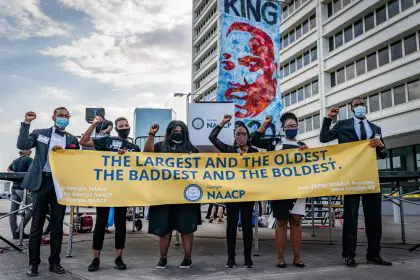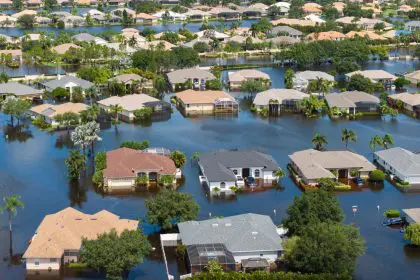As climate change wreaks havoc across the United States, more Americans are demanding accountability from fossil fuel companies. A recent poll by Data for Progress revealed that 62% of Americans believe these corporations should be held legally responsible for the climate crisis they have contributed to for decades.
Understanding climate criminals
So, who qualifies as a climate criminal? The focus is primarily on fossil fuel companies that have known for over 50 years about the harmful effects of their products. These corporations, including industry giants like Exxon, Chevron, BP and Shell, have consistently prioritized profit over public safety, all while receiving substantial subsidies and paying minimal taxes. They have actively suppressed scientific findings regarding their products and engaged in misleading marketing campaigns that continue to sow doubt about climate change.
Despite the ongoing climate crisis, these companies collectively earn over $100 billion in profits annually, raising questions about their ethical responsibilities.
Legislative responses: Make polluters pay
In response to public outcry, several states have enacted laws requiring fossil fuel companies to contribute to climate superfunds. These funds are designated for crucial infrastructure improvements, including resilient stormwater drainage systems and energy-efficient upgrades in schools and public housing. A significant portion of these funds is often allocated to disadvantaged communities that have been disproportionately affected by climate-related disasters.
The inspiration for these climate superfund laws comes from the Comprehensive Environmental Response, Compensation and Liability Act of 1980, commonly known as the Superfund law. This legislative framework aims to hold polluters accountable for environmental damage.
States leading the charge
Vermont: A trailblazer in climate action
Vermont, once considered a climate haven, has faced devastating floods that have cost the state over $2.2 billion in damages. In May 2024, lawmakers passed the Climate Superfund Cost Recovery Program, which seeks to hold fossil fuel companies accountable for their share of global greenhouse gas emissions over the past 19 years. Although Republican Governor Phil Scott did not sign the bill, he allowed it to pass, reflecting a growing recognition of the need for accountability.
New York: Following suit
Just a week after Vermont’s groundbreaking legislation, New York enacted the Climate Change Superfund Act. This law aims to raise $3 billion annually over the next 25 years through fees imposed on 36 fossil fuel companies operating in the state, based on their emissions. Governor Kathy Hochul has yet to take action on this bill, but its passage signifies a significant step toward climate accountability.
Broader legislative efforts
Following the lead of Vermont and New York, other states like California, Massachusetts and Maryland have introduced similar climate superfund laws in 2024. However, these bills face political hurdles and are currently stalled in committee. Despite this, there is a growing consensus among lawmakers and the public that fossil fuel companies must contribute to addressing the environmental damage they have caused.
At the federal level, Senator Chris Van Hollen of Maryland, along with Representatives Jerry Nadler and Judy Chu, introduced the Polluters Pay Climate Fund Act in September 2024. This legislation aims to establish a $1 trillion fund, requiring fossil fuel companies to pay based on their global greenhouse gas emissions. Senator Van Hollen emphasized that it is time for polluters to take responsibility for the damage they have inflicted on the planet.
Challenges ahead
Despite the momentum behind climate superfund laws, the fossil fuel industry has voiced strong opposition. They argue that state laws may conflict with federal regulations, such as the Clean Air Act. Additionally, they contend that the fees imposed are disproportionate to the alleged harm caused and that other contributors to climate change, such as industries and consumers, should also be held accountable.
As of now, no state has successfully charged a fossil fuel company under a climate superfund law, and the outcome of these legal challenges remains uncertain.
The fight against climate change is intensifying, with states taking significant steps to hold fossil fuel companies accountable for their role in the crisis. As public awareness grows and legislative efforts expand, the demand for justice and accountability in the face of climate crimes will only continue to rise.















